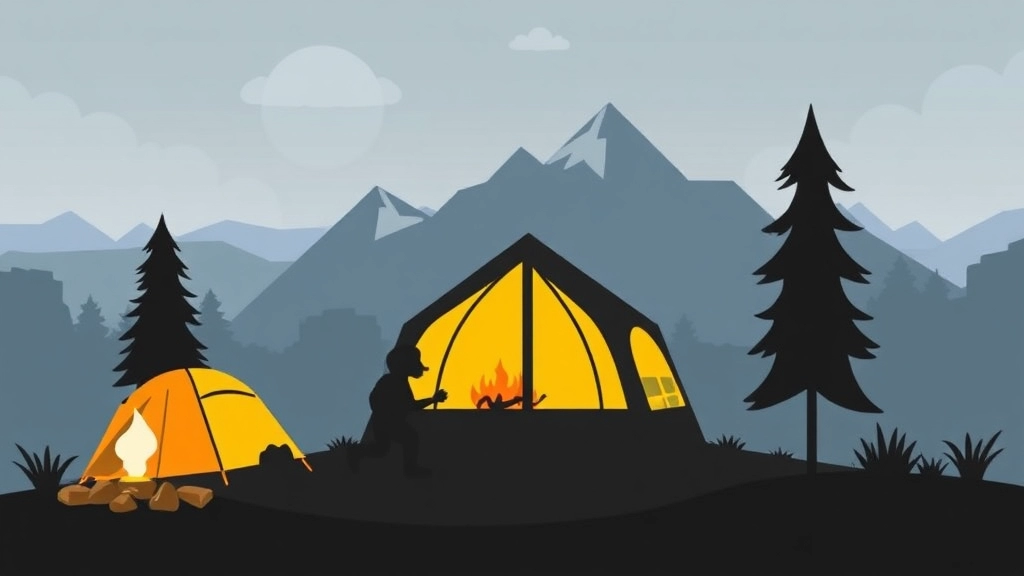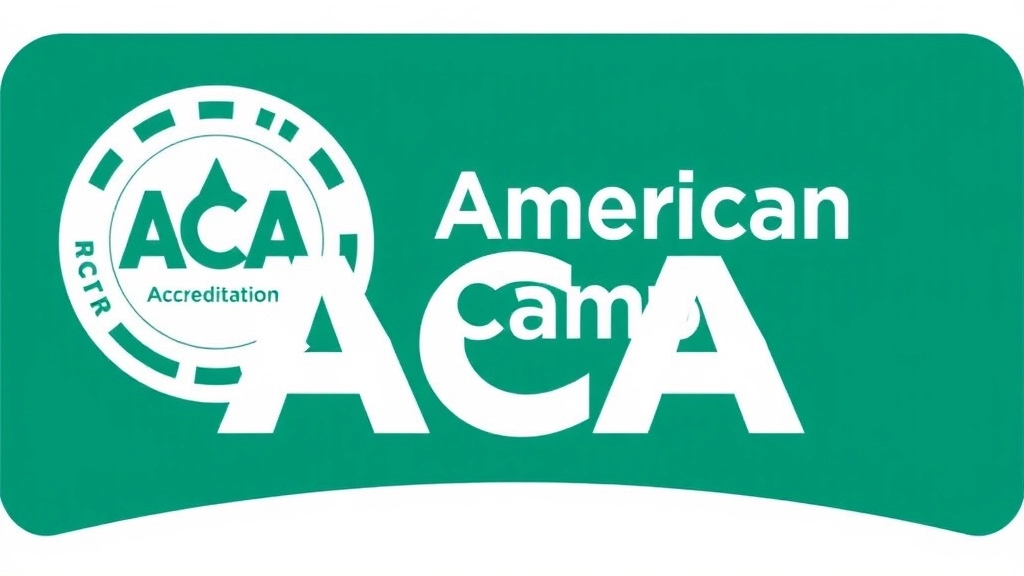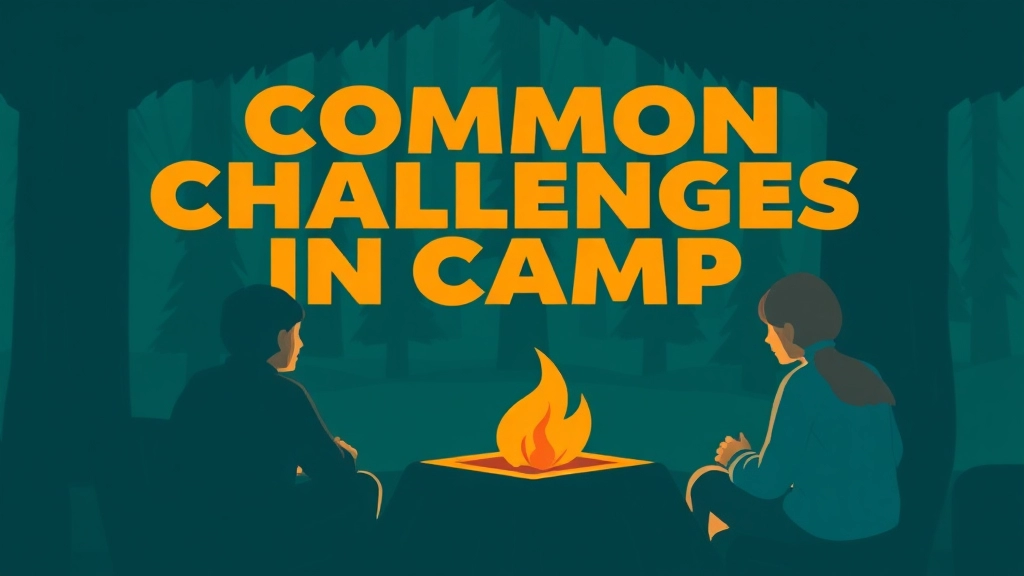Starting a Summer Camp
Starting a summer camp is a thrilling venture, but it comes with its own set of challenges and requirements. From understanding state-specific licensing requirements to ensuring health and safety regulations, there’s a lot to navigate. This article will guide you through the essential steps, including obtaining a camp license, meeting health and safety standards, achieving accreditation by the American Camp Association (ACA), and understanding insurance requirements. We’ll also delve into staffing and background checks, risk management and safety training, and common challenges in camp licensing. By the end, you’ll have a comprehensive roadmap to make your summer camp a successful and safe haven for kids.
Licensing for Summer Camp
Licensing for summer camp involves a myriad of steps, each critical to ensuring a smooth operation. We’ll start by breaking down state-specific licensing requirements and the steps to obtain a camp license. Health and safety regulations are paramount, and we’ll cover those in detail, along with the importance of ACA accreditation. Insurance is another crucial aspect, and we’ll guide you through the necessary policies to protect your camp. Staffing and background checks are essential for a safe environment, and risk management and safety training are non-negotiable. Finally, we’ll address common challenges in camp licensing and provide valuable resources to help you start your summer camp on the right foot.
State-Specific Licensing Requirements
Alright, let’s dive into the nitty-gritty of state-specific licensing requirements for summer camps. If you’re thinking about starting a camp, you’re probably wondering, “What hoops do I need to jump through to get this thing legal?” Trust me, you’re not alone. Navigating the maze of regulations can feel like a full-time job in itself. But don’t sweat itâI’ve got your back.
Why State-Specific Licensing Matters
First off, let’s talk about why state-specific licensing is crucial. Each state has its own set of rules and regulations when it comes to running a summer camp. These laws are designed to ensure the safety and well-being of the campers, which is something we all want, right? But here’s the kicker: these regulations can vary wildly from one state to another. So, what works in California might not fly in Texas.
Key Areas Covered by State Regulations
Most states will have you cover the following bases:
- Health and Safety Standards: This includes everything from food safety to emergency medical procedures.
- Staff Qualifications: Background checks, certifications, and training requirements.
- Facilities: Building codes, fire safety, and accessibility standards.
- Operational Procedures: Record-keeping, reporting, and compliance checks.
Real-Life Example
Take New York, for instance. The state requires camps to have a permit issued by the Department of Health. They also mandate that camp directors have prior experience and specific training in first aid and CPR. Compare that to a state like Idaho, where the requirements might be less stringent but still require adherence to basic health and safety protocols.
How to Find Your State’s Requirements
So, how do you figure out what your state requires? Here’s a quick roadmap:
- Check the State’s Health Department Website: Most states have a dedicated section for camp regulations.
- Contact Local Authorities: Sometimes, a quick phone call can clear up any confusion.
- Consult with Other Camp Owners: Networking can provide invaluable insights.
Pro Tip
Always keep an eye on updates. Regulations can change, and staying compliant is a moving target. Sign up for newsletters or alerts from your state’s health department to stay in the loop.
Why It Matters
Getting your state-specific licensing right is the foundation of a successful camp. It not only keeps you on the right side of the law but also ensures that you’re providing a safe and enriching environment for your campers. And let’s be realâpeace of mind for you and the parents is priceless. To help ensure that you cover all your bases, consider using a comprehensive packing list guide to make sure you have everything you need.
Steps to Obtain a Camp License

Alright, let’s cut to the chase.
Getting a camp license can feel like trying to solve a Rubik’s Cube blindfolded.
You’ve got questions, and I’ve got answers.
So, let’s break this down step-by-step, shall we?
1. Research State-Specific Requirements
First things first, every state has its own set of rules.
Some states are chill, others? Not so much.
Do your homework:
- Check your state’s official website for camp licensing requirements.
- Note down deadlines and specific documents you’ll need.
2. Complete the Application Form
Next, you’ll need to fill out an application.
Sounds simple, but it’s not just your name and address.
Be ready to provide:
- Detailed camp plans
- Maps of the camp layout
- Emergency procedures
3. Prepare Your Camp Site
Your camp site needs to meet certain standards.
Think of it like prepping for a visit from your in-laws.
Ensure:
- Safe and clean facilities
- Proper sanitation
- Adequate sleeping arrangements
4. Health and Safety Inspections
You’re not getting away without a few inspections.
Health and safety checks are crucial.
Expect to be evaluated on:
- Food safety
- Water quality
- Fire safety
5. Submit Necessary Documentation
Paperwork, paperwork, and more paperwork.
You’ll need to submit a ton of documents.
Gather:
- Proof of insurance
- Background checks for staff
- Health inspection reports
6. Pay the Fees
Nothing in life is free, right?
There will be fees involved – application fees, inspection fees, you name it.
Budget for:
- Initial application fees
- Renewal fees (yes, you’ll need to renew your license periodically)
7. Await Approval
Now, you wait.
This can take a while, so patience is key.
In the meantime:
- Double-check everything
- Prepare for any follow-up questions from the licensing board
8. Get Your License
Once approved, you’ll receive your camp license.
Congrats! You’re officially licensed to run your camp.
Display it:
- In a visible spot at your camp
- On your website (if you have one)
9. Stay Compliant
Getting the license is just the beginning.
You need to stay compliant with all regulations.
Regularly:
- Update your paperwork
- Conduct self-inspections
- Keep up with any changes in state regulations
Health and Safety Regulations for Camps
Alright, let’s talk about the elephant in the room: health and safety regulations for camps. If you’re thinking about starting a summer camp, this is probably one of the biggest headaches you’re anticipating. And guess what? You’re not alone. Every camp owner has been there, stressing about keeping the kiddos safe while also avoiding a mountain of paperwork. But don’t sweat it. We’re going to break it down so it’s as easy as pie.
Why Health and Safety Regulations Matter
First off, why do we even have these rules? Simple â to keep everyone safe. Think about it: you’ve got a bunch of kids running around, trying new activities, and sometimes pushing their limits. The last thing you want is for someone to get hurt because you skipped a safety check.
Key Health and Safety Regulations
Here are the main points you need to cover:
- Sanitation and Hygiene: Camps need to be squeaky clean. We’re talking regular cleaning schedules, proper waste disposal, and clean restrooms. Think about it like your mum coming over to inspect â it needs to be spotless.
- Medical Care: You need a plan for medical emergencies. This means having a first aid kit that’s fully stocked, staff trained in first aid and CPR, and a clear procedure for getting professional medical help if needed.
- Food Safety: If you’re serving meals, you need to follow food safety regulations. This includes proper storage, cooking, and serving of food. No one wants a case of food poisoning to ruin the fun.
- Emergency Preparedness: Fires, storms, or other emergencies can happen. Have a clear evacuation plan, conduct regular drills, and make sure everyone knows the procedure.
- Supervision Ratios: There are rules about how many staff members you need per child. This ensures that kids are properly supervised at all times, reducing the risk of accidents.
Real-Life Example
Let’s say you’re running a camp with a swimming pool. One of the health and safety regulations you’ll need to follow is having certified lifeguards on duty whenever the pool is open. I remember a story from a camp owner who skipped this step to save costs. Big mistake. A near-drowning incident happened, and they were hit with a hefty fine and almost shut down. Lesson learned: don’t cut corners on safety.
Tips for Staying Compliant
To make sure you’re ticking all the boxes, here are some actionable tips:
Accreditation by the American Camp Association (ACA)

Ever wondered what makes a summer camp truly stand out?
Why do some camps get rave reviews while others barely make a blip on the radar?
Well, one of the biggies is Accreditation by the American Camp Association (ACA).
So, what’s the deal with ACA accreditation?
First off, it’s not just a fancy badge.
It’s a rigorous process that ensures a camp meets high standards in health, safety, and program quality.
Think of it as the Michelin star for camps.
Why should you care about ACA accreditation?
Here’s the scoop:
- Trust and Credibility: Parents feel safer sending their kids to an ACA-accredited camp. It’s like a stamp of approval that says, “We’ve got our act together.”
- Safety First: ACA standards cover everything from emergency procedures to staff qualifications. It’s all about keeping the kiddos safe.
- Quality Programs: The ACA checks if the camp offers engaging and developmentally appropriate activities. No boring, cookie-cutter stuff here.
- Continuous Improvement: ACA-accredited camps are always looking to up their game. They undergo regular reviews and must stay updated with best practices.
How do you get ACA accreditation?
It’s not a walk in the park, but here’s the gist:
- Self-Assessment: You start by doing a deep dive into your camp’s operations. Think of it as a health check-up for your camp.
- Standards Visit: An ACA visitor comes to your camp to see if you’re walking the talk. They’ll check everything from staff training to safety protocols.
- Feedback and Improvement: You get a report with feedback. If you need to tweak a few things, you’ve got time to fix them before the final review.
- Final Review: Once you’ve made the necessary improvements, you go through a final review. Pass this, and you’re in the club!
Real Talk: Is it worth it?
Absolutely.
Here’s why:
- Peace of Mind: Knowing you meet top-notch standards is priceless.
- Marketing Edge: Parents will pick an ACA-accredited camp over others any day.
- Networking: You get to be part of a community of camp professionals. Share tips, get advice, and keep improving.
Quick Tips
- Start Early: The accreditation process can take time. Don’t wait until the last minute.
- Get the Team Onboard: Everyone from the director to the camp counselors needs to be in the loop.
- Stay Organized: Keep records of everything. ACA loves documentation.
In a nutshell, Accreditation by the American Camp Association (ACA) isn’t just a feather in your cap.
It’s a game-changer.
It boosts your camp’s credibility, ensures safety, and helps you deliver top-notch programs.
And that’s what makes parents and kids keep coming back year after year.
Insurance Requirements for Summer Camps
Alright, let’s cut to the chase. If you’re thinking about starting a summer camp, you’ve probably got a million questions buzzing around your head. One of the big ones? Insurance requirements for summer camps. Trust me, this isn’t something you want to overlook.
Why Do You Need Insurance?
First off, why do you even need insurance for a summer camp? Imagine this: a camper trips and breaks an arm, or worse, there’s a fire in one of the cabins. Without insurance, you’re looking at some serious out-of-pocket expenses. Plus, insurance isn’t just about covering your backside; it’s about peace of mind for you, your staff, and the parents trusting you with their kids.
Types of Insurance You Need
So, what types of insurance should you be looking at? Here’s the lowdown:
- General Liability Insurance: This is your bread and butter. It covers accidents, injuries, and property damage. Think of it as your first line of defence.
- Property Insurance: Got buildings, equipment, or supplies? You’ll want this to cover any potential damage or loss.
- Workers’ Compensation Insurance: If you’ve got staff, this is a must. It covers medical expenses and lost wages if someone gets hurt on the job.
- Automobile Insurance: If you’re transporting kids, make sure your vehicles are covered.
- Camper Accident and Health Insurance: This covers medical expenses for campers who get injured or sick.
Real Talk: The Cost
You’re probably wondering, “How much is this going to cost me?” Well, it depends. Factors like the size of your camp, the number of campers, and the types of activities you offer all play a role. But here’s a ballpark: general liability insurance can range from £500 to £1,500 per year. Yeah, it’s an investment, but one you can’t afford to skip.
Tips to Keep Costs Down
Now, let’s talk about keeping those costs in check:
- Shop Around: Don’t just go with the first quote you get. Compare different providers.
- Bundle Policies: Some insurers offer discounts if you bundle multiple types of coverage.
- Risk Management: Implement strong safety protocols to reduce the likelihood of claims. This can sometimes lower your premiums.
Real-Life Example
Let me share a quick story. A friend of mine runs a summer camp and thought he could get by with minimal insurance. One summer, a camper had a severe allergic reaction. The medical bills were astronomical. Luckily, he had camper accident and health insurance, which covered most of the costs. Without it, his camp might not have survived financially.
For more insights on making your camp a success, check out our Essential Guide for Summer Camp Leaders and discover What You Need to Know About Summer Camp Costs.
Staffing and Background Checks

Alright, let’s talk about staffing and background checks.
Ever wondered how to build a solid camp team without stressing about safety and reliability?
You’re not alone.
Many camp owners worry about finding the right people and ensuring they’re trustworthy.
Here’s how to nail it.
Finding the Right Staff
First off, recruitment.
You need people who love working with kids and can handle the camp environment.
Look for:
- Experience with children: Previous camp jobs, teaching, or childcare experience.
- Special skills: Lifeguards, first-aid certified, or even arts and crafts experts.
- Good character: Reliable, responsible, and a natural leader.
Background Checks
Now, let’s get into the nitty-gritty: background checks.
You can’t skip this.
Safety is non-negotiable.
Here’s what you need to do:
- Criminal background check: Make sure there are no red flags.
- References: Call up past employers or colleagues.
- Social media: A quick scan can reveal a lot.
Training and Orientation
Once you’ve got your team, it’s time for training.
You can’t just throw them into the deep end.
Here’s a quick list:
- Camp policies: Safety rules, daily schedules, and emergency procedures.
- First aid: Basic first aid and CPR training.
- Childcare: Handling behavioural issues, keeping kids engaged, and ensuring everyone has fun.
Real Talk
I remember a camp where we hired someone without a thorough background check.
Big mistake.
They turned out to be unreliable, and it disrupted the whole camp.
Learn from my mistake: do your homework.
Risk Management and Safety Training
Ever wondered what keeps a summer camp running smoothly and safely? It’s all about risk management and safety training. If you’re thinking about starting a summer camp, this is one of the most crucial elements to get right. Trust me, you don’t want to be caught off guard when it comes to the well-being of your campers and staff.
Why Risk Management and Safety Training Matter
First off, let’s get real. Parents are entrusting you with their kids, and that’s a big deal. They want to know that their children are safe and well-cared for. That’s why risk management and safety training are non-negotiable. Here’s why:
- Minimises Accidents: Proper training helps reduce the likelihood of accidents and injuries.
- Legal Compliance: It ensures you meet all legal and regulatory requirements.
- Peace of Mind: It builds trust with parents and guardians, knowing their children are in safe hands.
Key Components of Risk Management
So, what does effective risk management look like? Here are some essential elements:
- Risk Assessment: Identify potential hazards in your camp environment. This could be anything from uneven terrain to water activities.
- Emergency Plans: Develop comprehensive emergency plans. Know what to do in case of fires, medical emergencies, or severe weather.
- Regular Inspections: Conduct regular safety inspections of all camp facilities and equipment.
- Incident Reporting: Have a system in place for reporting and documenting any incidents or near-misses.
Essential Safety Training Programs
Safety training is a game-changer. Here’s a quick rundown of the must-have programs:
- First Aid and CPR: Ensure all staff are certified in first aid and CPR. You never know when these skills will come in handy.
- Fire Safety: Train staff on fire prevention and evacuation procedures.
- Water Safety: If your camp includes water activities, lifeguard certification is a must.
- Child Protection: Educate staff on recognising signs of abuse and the proper steps to take if they suspect something is wrong.
Real-Life Example: The Power of Preparedness
Let’s say you’re running a summer camp with a lake. One day, a camper starts struggling in the water. Because your staff are well-trained in water safety and CPR, they quickly rescue the camper and provide immediate care. This scenario could have ended differently without proper training. It’s not just about ticking boxes; it’s about being prepared for real-life situations.
Common Challenges and How to Overcome Them
Running a camp isn’t without its challenges. Here are some you might face and how to tackle them:
- Complacency: Over time, staff might get too comfortable and slack off on safety protocols. Regular refresher courses can help keep everyone on their toes.
- Budget Constraints: Safety training can be expensive. Look for grants or partner with local organisations that offer free or discounted training.
- Staff Turnover: High turnover can mean constantly training new staff. Implement a robust onboarding process to get new hires up to speed quickly.
Common Challenges in Camp Licensing

Ever thought about starting a summer camp but got tangled up in the licensing maze? You’re not alone.
Getting a camp license can feel like climbing a mountain.
Here are some common hurdles you might face:
Understanding State-Specific Requirements
Every state has its own rules.
What works in California might not fly in New York.
This means you need to:
- Research thoroughly: Know your state’s specific licensing requirements.
- Stay updated: Regulations can change, and you need to keep up.
Navigating Health and Safety Regulations
Health and safety are a big deal.
You need to meet stringent standards to keep kids safe.
Key areas to focus on:
- Facility inspections: Ensure your site meets health and safety codes.
- First aid readiness: Have certified first aid staff and proper medical supplies.
Staffing and Background Checks
Hiring the right people is crucial.
But it’s not just about finding good staff.
You must also:
- Conduct background checks: Ensure staff have clean records.
- Verify qualifications: Make sure they have the necessary certifications.
Insurance and Liability Concerns
Insurance is a must.
But finding the right coverage can be tricky.
Consider:
- General liability insurance: Covers accidents and injuries.
- Property insurance: Protects your camp facilities.
Meeting Accreditation Standards
Want to be accredited by the American Camp Association (ACA)?
It’s a gold standard but comes with its own set of challenges.
ACA accreditation involves:
- Meeting strict guidelines: From staff ratios to program quality.
- Regular reviews: Ensuring ongoing compliance.
Real-World Example
Take the case of Jane, who started a summer camp in Texas.
She quickly realised that state-specific licensing was just the beginning.
Jane had to juggle health and safety inspections, staff background checks, and ACA accreditation.
It wasn’t easy, but she managed by staying organised and seeking help from experts.
Final Thoughts
Starting a summer camp is rewarding but comes with its share of challenges.
Understanding these common hurdles can help you navigate the process more smoothly.
Remember: Research, preparation, and staying updated are your best allies.
Got more questions? Check out our resources for starting a summer camp.
Facing challenges? Share your story in the comments below.
Let’s tackle this together.
Internal Links
- State-Specific Licensing Requirements
- Health and Safety Regulations for Camps
- Accreditation by the American Camp Association (ACA)
- Insurance Requirements for Summer Camps
Resources for Starting a Summer Camp
Thinking about starting a summer camp?
I get it. The idea is exciting but can also feel overwhelming.
Where do you even start?
Let’s break it down.
1. Government Websites
First off, check out your local government websites. They usually have a ton of info on licensing requirements and regulations. Look for sections dedicated to small businesses or community services.
2. American Camp Association (ACA)
The ACA is a goldmine. Their site offers guidelines, best practices, and even templates for policies and procedures. Plus, they have accreditation info if you want to go that route.
3. Books and Guides
There are some great books out there. “How to Start and Run a Summer Camp” by Mark Richman is one of them. It covers everything from planning to execution.
4. Online Courses
Platforms like Udemy and Coursera offer courses on running camps. These can be super helpful for understanding the business side of things.
5. Networking
Join Facebook groups or LinkedIn communities focused on summer camps. Talking to people who’ve been there, done that, can give you real-world insights.
6. Local Resources
Don’t forget about local resources. Your local Chamber of Commerce or Small Business Development Center can offer advice and sometimes even funding opportunities. You might also find helpful information in guides like the City of Rochester Summer Camps Guide.
7. Legal Advice
It’s a good idea to consult a lawyer. They can help you navigate the legal maze and make sure you’re compliant with all regulations.
8. Financial Planning
You’ll need a solid financial plan. Consider hiring a financial advisor or using software like QuickBooks to keep your finances in check.
9. Health and Safety Guidelines
Check out resources from the CDC and local health departments. They offer guidelines to keep your camp safe and healthy.
10. Insurance Providers
Talk to insurance providers who specialise in camps. They can offer tailored policies to cover all your bases.
11. Risk Management Tools
Use tools like risk assessment software to identify and mitigate potential risks. Better safe than sorry, right?
12. Staffing Resources
Websites like Indeed and LinkedIn are great for finding qualified staff. You can also reach out to local universities for interns or volunteers.
13. Training Programs
Look for training programs for camp staff. The ACA offers some, but there are also other organisations that provide specialised training. For example, check out the Engaging Summer Camp Curriculum Guide for more ideas.
14. Marketing Tools
Use social media, email marketing, and even local newspapers to get the word out. A good marketing plan can make or break your camp.
15. Feedback Systems
Set up systems to get feedback from campers and parents. This will help you improve year after year.
So, there you have it. A comprehensive list of resources to get you started.
Remember, starting a summer camp is a journey. But with the right resources, you’ll be well on your way to creating an amazing experience for kids.
Got more questions? Drop them in the comments below! Let’s get this conversation going.
FAQs on Licensing for Summer Camp
What are the first steps to obtain a camp license?
Research state-specific requirements is your first step. Each state has different rules, so check your state’s official website for camp licensing requirements, deadlines, and necessary documents.
What information is needed for the camp license application form?
You will need to provide detailed camp plans, maps of the camp layout, and emergency procedures. It’s more than just your name and address.
What standards must my camp site meet?
Your camp site needs to have safe and clean facilities, proper sanitation, and adequate sleeping arrangements. Think of it like prepping for a visit from your in-laws.
What inspections are required for camp licensing?
Health and safety inspections are crucial. Expect evaluations on food safety, water quality, and fire safety.
What documents do I need to submit for camp licensing?
You need to gather proof of insurance, background checks for staff, and health inspection reports. Paperwork is a big part of the process.
Are there any fees involved in obtaining a camp license?
Yes, there will be fees such as initial application fees and renewal fees. Budget accordingly.
How long does it take to get a camp license approved?
Approval can take a while, so patience is key. In the meantime, double-check everything and prepare for any follow-up questions from the licensing board.
What should I do once I receive my camp license?
Once approved, display your camp license in a visible spot at your camp and on your website if you have one.
How do I maintain compliance with camp licensing regulations?
Regularly update your paperwork, conduct self-inspections, and keep up with any changes in state regulations. Staying compliant is an ongoing process.
What is ACA accreditation and why is it important?
Accreditation by the American Camp Association (ACA) ensures a camp meets high standards in health, safety, and program quality. It boosts trust, safety, and program quality, making your camp more appealing to parents.
How can I get ACA accreditation for my camp?
Start with a self-assessment, then undergo a standards visit by an ACA visitor, make necessary improvements based on feedback, and finally, pass the final review. It’s a rigorous but rewarding process.
What are the benefits of ACA accreditation?
ACA accreditation provides peace of mind, a marketing edge, and networking opportunities. It ensures you meet top-notch standards and helps in attracting more campers.
What should I consider when hiring camp staff?
Look for experience with children, special skills like first aid certification, and good character. Conduct thorough background checks including criminal records, references, and social media scans.
What kind of training should camp staff undergo?
Staff should be trained in camp policies, basic first aid and CPR, and childcare techniques. Proper training ensures safety and a positive experience for campers.
What are common challenges in obtaining a camp license?
Understanding state-specific requirements, navigating health and safety regulations, conducting background checks, finding the right insurance, and meeting ACA accreditation standards are common challenges. Research and preparation can help overcome these hurdles.
Where can I find more resources on starting a summer camp?
Check out our resources for starting a summer camp, including state-specific licensing requirements, health and safety regulations, and insurance requirements.
References
-
Accreditation Process by the American Camp Association (ACA)
-
Health and Safety Standards for Camps by CDC
-
State Camp Licensing Requirements by American Bar Association

